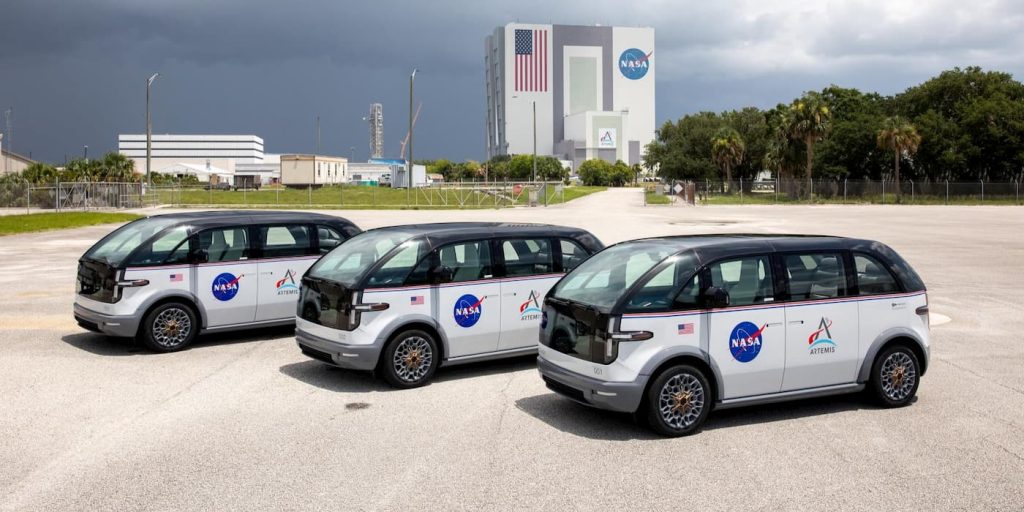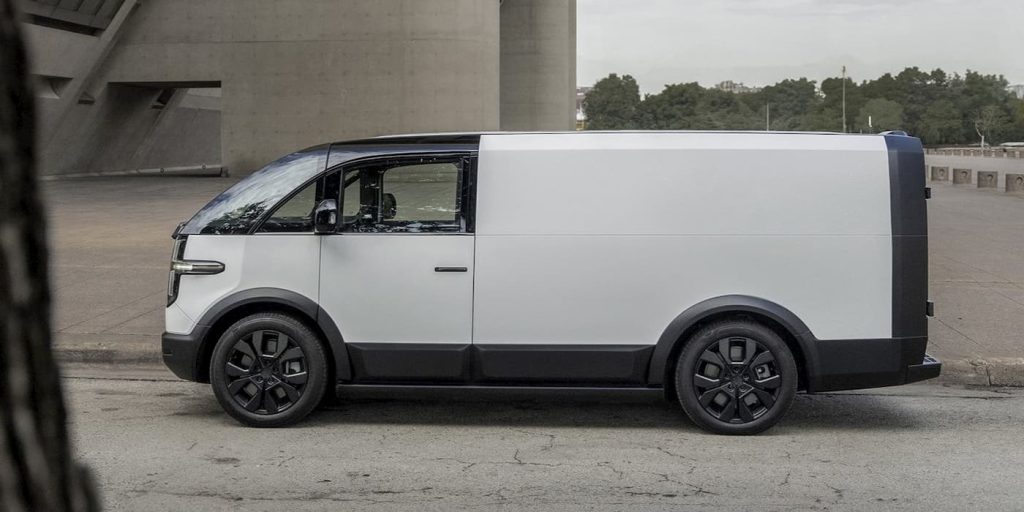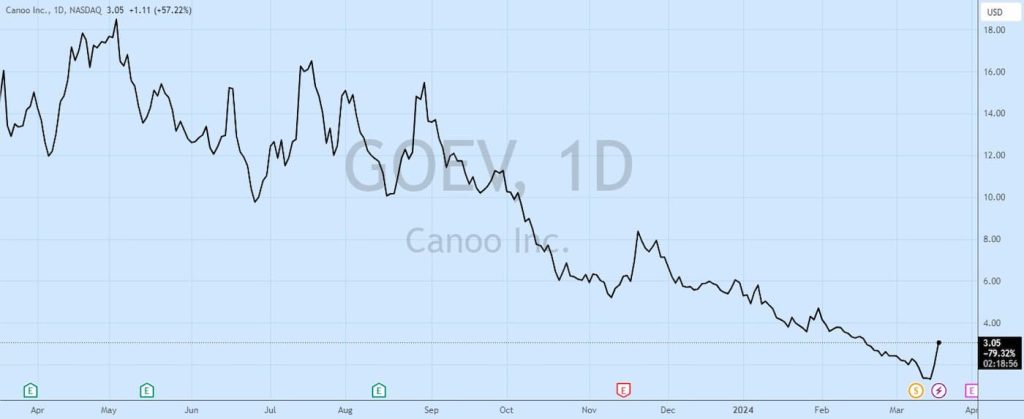[ad_1]

Shares of American EV startup Canoo (GOEV) are surging after its Oklahoma City facility received approval as a Foreign Trade Zone (FTZ). The approval will help improve Canoo improve profitability as it scales production.
Canoo (GOEV) gets FTZ status for its OKC EV facility
After throwing a lifeline to keep its shares listed on the NASDAQ with a reverse stock split earlier this month, Canoo’s (GOEV) stock is surging following the approval at its OKC EV facility.
Canoo announced on Monday that the US Department of Commerce approved the plant as an FTZ, sparking the rally. The approval will help accelerate Canoo’s Made in America EV strategy, improve unit profitability, and “enable a faster path to breakeven.”
The plant currently employs around 100 workers but is expected to support up to 1,100 at full capacity.
By securing an FTZ designation, Canoo eliminates all customs duties on vehicles sold overseas and defers of customs duties on imported parts for EVs sold in the US.
Canoo sources over 90% of its parts in the US and free trade partners, with about 70% from North America.

Improving profitability
According to Canoo, the FTZ will “significantly enhance profitability” by lowering vehicle costs by up to 5% on parts imported from other parts of the globe. The cost reductions will be on EVs made in the US and exported overseas, which Canoo intends to announce “in the near future.”
For vehicles sold in the US, FTZ improves working capital “by millions” by derring customs, duties, and tariffs on imports.

Canoo expects additional cost savings through a simplified customs process and streamlined supply chain.
The EV maker is waiting for approval at its other manufacturing plans. If approved, Canoo FTZs will be one of the largest in Oklahoma.

Following the news, Canoo’s (GOEV) stock is up over 50% (+1.06 per share). After hitting an all-time low earlier this month, Canoo shares are bouncing. However, they are still down nearly 80% over the past year.
Electrek’s Take
Like other EV startups (or any growth company), a higher stock price makes it easier to raise funds (via debt) and attract new investors.
Despite the win, Canoo’s finances are still a concern. At the end of September, Canoo had only $8.3 million in cash and equivalents.
The EV maker lost $273.6 million through the first nine months of 2023. Although losses slimmed in Q3, Canoo still lost $112 million.
Canoo CEO Tony Aquila explained that although “we still have things left to prove,” Canoo is now manufacturing and generating revenue. The EV maker posted $519,000 in revenue on its first EV sales.
The EV maker is moving toward hitting 20,000 annual vehicle capacity. Canoo is making progress with the first official customer deliveries of its commercial electric van last month. It also announced that USPS is purchasing six LDV 190 delivery vans as a transition to electric.
Several EV startups like Canoo are struggling amid rising interest rates and more competition entering the market.
Fisker (FSR) announced earlier today that it is pausing production after failing to make an interest payment. The company is halting production for six weeks as it looks to get its finances in order.
Meanwhile, Canoo is serving a different market in commercial vehicles that could prove to be a lifeline to continue operations. With its “Made in America” approach, Canoo expects to benefit from the IRA’s Commercial Clean Vehicle Credit. With that, Canoo customers are eligible for a tax credit of up to $7,500.
As of Q3, Canoo had a +$3 billion order book and $750 million in commited orders (18,000 units).
We’ll learn more about Canoo’s financial situation and oulook for the year when it releases Q4 and full year 2023 earnings later this month.
FTC: We use income earning auto affiliate links. More.
[ad_2]
Source link
